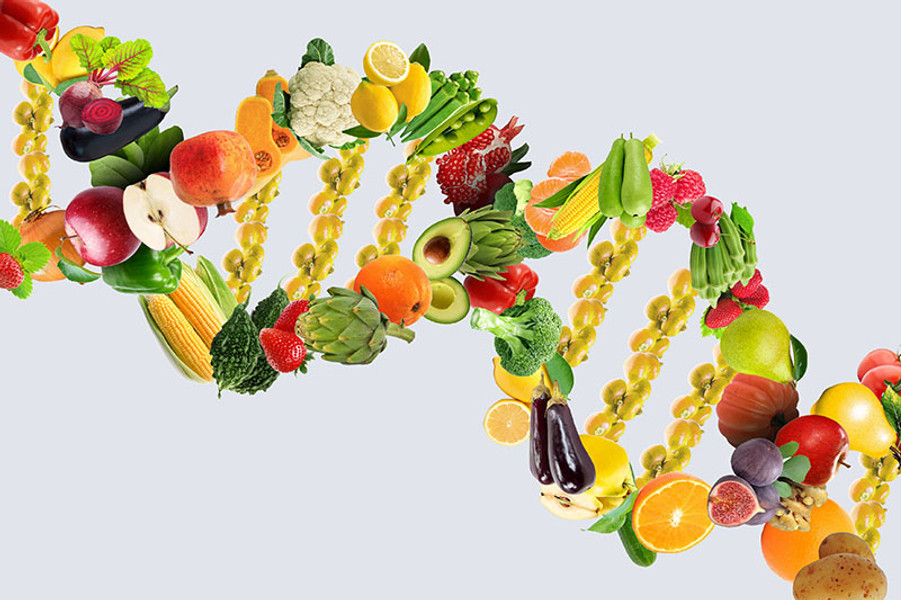Food vs. Pills: Shifting the Paradigm for Healthier Futures
Posted by Fresh Harvest Market on 17th Jul 2024
Unveiling the Power of Food as Medicine: A Profitless Panacea for Corporations, Yet a Potent Shield Against Chronic Illness
In a world dominated by pharmaceutical giants and billion-dollar drug corporations, the idea that "food is medicine" often takes a backseat. The irony lies in the fact that while the pharmaceutical industry thrives on medication sales, the concept of using food as a preventive measure against chronic illnesses remains largely underappreciated. This article aims to shed light on the effectiveness of food as medicine, its limited profitability for drug corporations, and its unparalleled role in preventing chronic diseases on an individual level.
Understanding the Profit Paradigm
Big Pharma's Bottom Line: Profits over Prevention
Drug corporations operate on a profit-driven model, focusing on the development and sale of medications that promise quick relief or management of existing health issues. The financial success of these corporations is intricately linked to recurring purchases of their products, creating a cycle where chronic diseases become lucrative markets for sustained revenue.
The Neglected Goldmine of Nutritional Therapy
On the contrary, embracing food as medicine offers a different perspective. Nutritional therapy, centered around a balanced and wholesome diet, addresses the root causes of many chronic illnesses. While this approach is highly effective in preventing diseases, it lacks the recurrent revenue stream that comes with long-term medication dependency.
Food's Powerful Role in Prevention
The Microcosm of Nutrients: Defenders Against Chronic Ailments
Every bite we take is a potential step toward disease prevention. Nutrient-rich foods, laden with vitamins, minerals, and antioxidants, play a pivotal role in fortifying the body's defenses. From the anti-inflammatory properties of turmeric to the heart-protective benefits of omega-3 fatty acids, food provides a diverse arsenal for maintaining optimal health.
Personalized Prevention: Tailoring Diets to Individuals
Unlike pharmaceuticals designed for mass consumption, food-as-medicine allows for personalized preventive approaches. Individuals can tailor their diets to address specific health concerns, creating a nuanced and effective strategy that goes beyond the one-size-fits-all mentality of many medications.
The Profit Paradox: Why Food as Medicine Lags
Patent Predicaments: The Challenge of Monetizing Broccoli
One of the primary reasons food as medicine lacks corporate interest is the inability to patent natural substances. Unlike pharmaceuticals, which can be patented for exclusive production and sale, broccoli, blueberries, or any other nutrient-rich food cannot be monopolized. This lack of exclusivity diminishes the profit potential for corporations, making food-based approaches less appealing from a business standpoint.
Marketing Challenges: Selling Prevention in a Pill-Popping Culture
Consumer habits and societal expectations also play a role in the profitability of preventive measures. In a culture accustomed to quick fixes in the form of pills, marketing the slow and steady benefits of a healthy diet becomes a daunting task. Convincing individuals to invest in prevention rather than cure is a paradigm shift that drug corporations find challenging.
Breaking the Chains: Embracing a Food-First Approach
Empowering Individuals: Taking Control of Health
The power to prevent chronic illnesses lies in the hands of individuals. Embracing a food-first approach empowers people to reclaim control over their health. Rather than waiting for symptoms to manifest and relying on medications, individuals can proactively shape their well-being through mindful eating.
Educational Initiatives: Bridging the Knowledge Gap
To shift the paradigm towards food as medicine, education is key. Initiatives aimed at raising awareness about the preventive potential of nutrition can bridge the knowledge gap. Empowering individuals with the understanding of how food choices influence health can reshape priorities and foster a culture of proactive well-being.
A Call to Prioritize Prevention
In a landscape dominated by pharmaceutical giants, the profitability of food as medicine remains limited. However, its potential for preventing chronic illnesses on an individual level is unparalleled. As we navigate the complexities of healthcare, let us not overlook the simplicity and effectiveness of preventive measures. It's time to prioritize the profound impact of food on our well-being and recognize its role as a powerful, albeit profitless, ally in the fight against chronic diseases.

